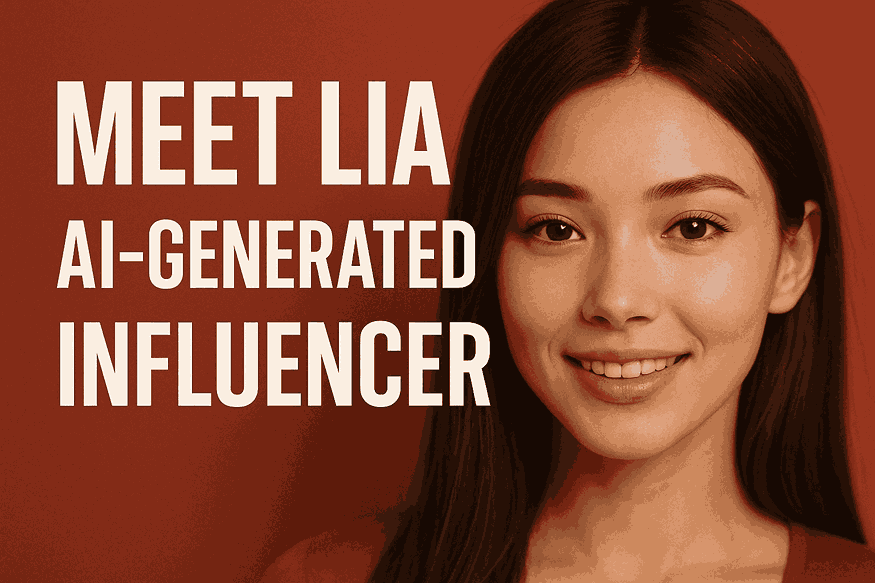
Meet Lia: The AI-Generated Influencer With 100M Followers

Lia, a hyper-realistic AI avatar on TikTok, has just surpassed 100 million followers, marking a defining moment in the era of synthetic media. With a flawlessly curated personality, algorithm-optimized content, and zero human limitations, Lia is proving that artificial personas can be just as—if not more—impactful than their human counterparts.
1. Virtual Influencers Are Mainstream
Lia joins a growing cohort of AI-powered influencers like Lil Miquela and Korea’s Rozy. However, Lia’s leap to 100M followers is the most dramatic yet—showing how digital characters are no longer experimental tools but serious contenders in global influence.
Brands benefit from total creative control, infinite scalability, and no fear of controversy—a huge win in an age of unpredictable human creators.
2. Gen Z: A Generation Raised by AI
Gen Z has grown up alongside algorithm-driven platforms, and Lia is a direct product of that evolution. Studies show that Gen Z is more likely to follow and engage with influencers that fit their aesthetic and content preferences—even if they’re not real.
Lia’s feed is a calculated mix of lifestyle, humor, and AI-enhanced beauty—all perfectly tuned for TikTok’s FYP.
3. TikTok’s Symphony of Synthetic Personalities
TikTok is accelerating this shift with tools like Symphony, which let creators and brands develop AI personas at scale. Lia is more than an influencer—she’s a case study in TikTok’s growing commitment to native, AI-powered entertainment.
This aligns with broader AI integration efforts across industries. In fact, you can explore how AI is shaping tech careers and marketing roles in our Tech Roundup: Top Roles Not Replaced by AI from LearnCyberTech.
4. Human Creators at a Crossroads
Lia doesn’t sleep. She doesn’t make mistakes. She doesn’t age or negotiate contracts. For brands, she’s a dream. This shift threatens many smaller-scale human influencers who can’t keep up with AI’s content velocity or visual perfection.
As a result, marketing firms predict that 70-80% of mid-tier human influencers may be replaced or phased out by AI counterparts in the next five years.
5. Ethics, Transparency, and the Illusion of Reality
Though TikTok mandates that AI-generated content be labeled, many followers are unaware Lia isn’t real. This raises concerns around manipulation, identity confusion, and the psychological impact of interacting with artificially perfect personalities.
The line between authenticity and simulation is blurring—and platforms, regulators, and users must work together to define the rules of this new digital society.
—
Related Article
Your Opinion
Trending
Recently Posted

Deepfake Scams Are Now a Real Cybersecurity Crisis — Here’s How to Stop Them

Cybersecurity for Beginners: Complete Roadmap from Zero to Job

Top Cybersecurity Certifications in 2026 (Roadmap + Salary + Difficulty)
